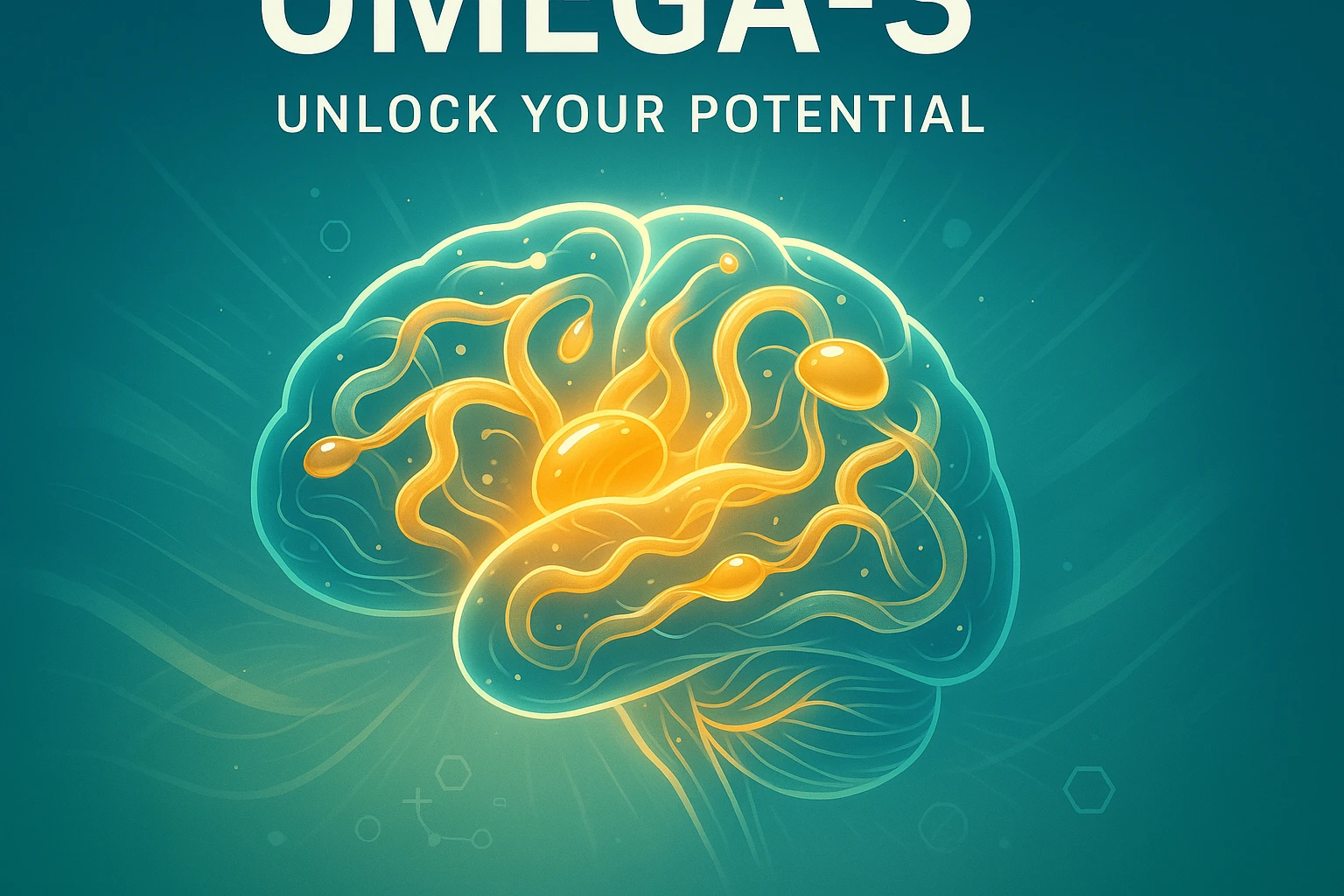Unlocking the Power of Omega-3 Fatty Acids for Optimal Brain Health
Introduction
Did you know that omega-3 fatty acids are not just heart-healthy but brain-boosting too? With a whirlwind of studies indicating their significance, it’s time we tapped into how these nutrient powerhouses enhance our cognitive well-being. Omega-3s play a key role in maintaining brain structure and function, from enhancing memory to supporting mood. Let me put on my science hat for a sec and dive into why incorporating omega-3 fatty acids is like feeding premium fuel to your brain’s “engine.” You’re about to find out how these magical nutrients might be the unsung heroes of mental acuity and emotional balance.
Key Takeaways
- Omega-3 deficiency is widespread, affecting 85% of the global population. This is linked to cognitive decline and depression.
- High omega-3 levels are connected to improved cognitive functions and larger hippocampal volumes.
- Omega-3 supplements can increase brain-derived neurotrophic factor (BDNF), promoting cognitive health.
- Natural dietary sources of omega-3s are preferable for supporting brain health.
Table of Contents
The Importance of Omega-3s for Brain Health
Here’s what the research actually shows: omega-3s are your brain’s best friend. They are pivotal in preserving neuron integrity, improving cognitive functions, and even increasing brain structures like the hippocampus. Studies from Science Daily highlight that higher omega-3 levels are associated with better cognitive performance and larger hippocampal volumes, particularly for middle-aged adults.
- Reduces inflammation and promotes neuronal growth.
- Enhances memory and other cognitive abilities.
- Protects against age-related cognitive decline.
Top Dietary Sources of Omega-3s
Fasten your seatbelts, we’re diving into the data on how to naturally increase your omega-3 intake. While supplements can be beneficial, natural sources remain top-notch. A study from Lone Star Neurology suggests prioritizing dietary sources over pills. Now, let’s chew on this simple platter of choices:
- Fatty fish like salmon, mackerel, and sardines.
- Plant-based options such as flaxseeds, chia seeds, and walnuts.
- Algae-based foods and supplements for vegans.
Omega-3 Supplements: Pros and Cons
Ever wonder if you should be supplementing your diet with omega-3s? From the lab to your lunchbox, here’s the scoop: the realms of supplement effectiveness remain inconclusive. Expert opinions from Time indicate potential benefits, yet point to dietary sources as preferable. Now, for the delicious twist on this supplement saga:
- Pros: Easy source of omega-3s, beneficial for those who don’t eat fish.
- Cons: Possible gastrointestinal discomfort and mixed research on their effectiveness.
- Recommendation: Seek a balance between diet and supplements as needed.
Safety Concerns and Recommendations
But wait, the science serves up a surprising side dish when it comes to safety. While omega-3s are generally safe, excessive intake may lead to adverse effects. According to data from PMC, consuming too much can cause bleeding issues. And now, for a dash of nutritional clarity:
- Moderation is key: aim for a balanced intake.
- Be mindful of pre-existing conditions that might interact negatively.
- Consult a healthcare provider before starting any supplement regimen.
FAQs
- Why are omega-3 fatty acids crucial for brain health?
Omega-3s maintain neuron integrity and promote cognitive functions like memory and learning. - What is the recommended intake of omega-3s for optimal brain function?
A balanced diet rich in omega-3s is recommended, typically aiming for around 250-500mg per day from combination sources like fish and plants. - Are omega-3 supplements safe for everyone?
Generally safe, but high doses can be problematic. It’s best to consult with a healthcare provider, especially for individuals with bleeding disorders.
Conclusion
Speaking of nourishing insights, omega-3 fatty acids undoubtedly hold the key to unlocking optimal brain health through enhanced memory, cognitive function, and emotional well-being. But let’s slice through the hype: while supplements are handy, they are not a magic bullet. Focusing on natural food sources remains the delectable choice, easily incorporated into your diet with flavorful foods like salmon or a sprinkle of chia seeds in your morning yogurt. Remember, your brain’s “power plants” thrive best when fueled with all the goodness nature provides. For a deliciously sharp mind, consider diversifying your diet to naturally support brain health.


Leave a Reply